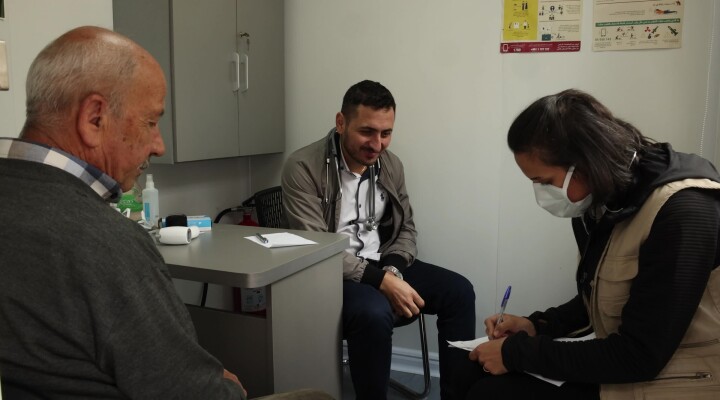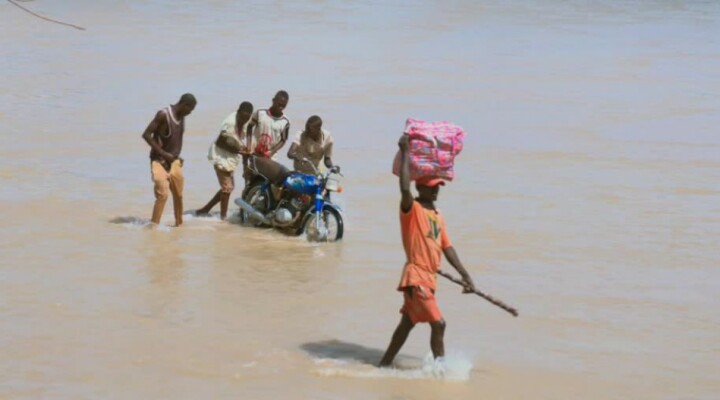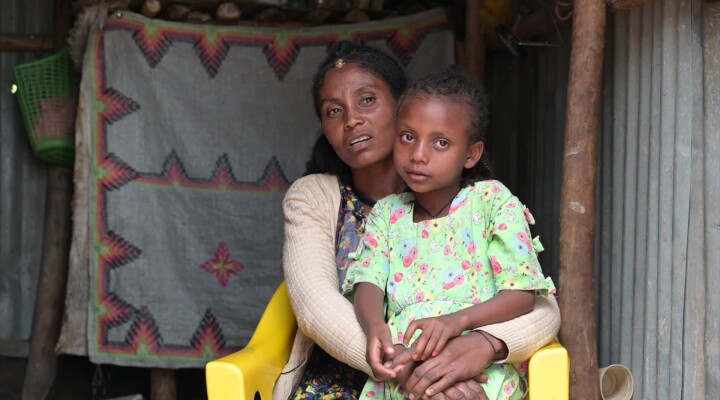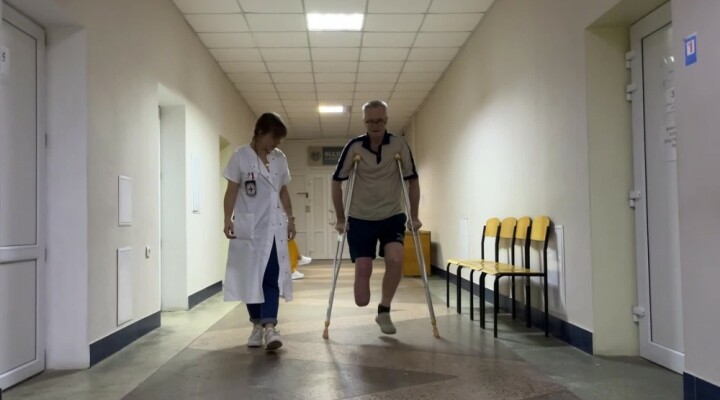Somalia: Tens of thousands still separated from their loved ones
While the humanitarian situation in Somalia has improved slightly, there remain significant humanitarian concerns across the country. After two decades of fighting, tens of thousands of people have been separated from their families. The whereabouts of at least 12,000 people are unknown. Despite the passing of time, some Somalis are as determined as ever to find their loved ones.
Batulo lives in a camp housing displaced people on the site of the former UK embassy in Mogadishu. Her family lost everything during the conflict. She has been living in the camp for over four years and it's been four years since she lost touch with her husband. After asking the Somali Red Crescent Society to locate him, Batulo received news in 2012 that he was in Nairobi, in neighbouring Kenya. The Somali Red Crescent then helped her to contact him.
Despite the increasing availability of mobile phones in Somalia, sending a Red Cross/Red Crescent message is not something from the past. For Somalis who live in camps and in rural areas, it is often the only means of communication at their disposal.
Just after Batulo re-established contact with her husband, he passed away. Batulo continued to send Red Cross/Red Crescent messages to her brother-in-law, and discovered that her husband had fathered more children in Nairobi. Batulo is sad that her husband is gone, but she continues to send family messages to her brother-in-law. She says: "I am very happy because we are getting in touch with people who have been gone for a long time."
As radio remains the best way of reaching many Somalis, the ICRC and the BBC have combined their efforts to seek out people whose whereabouts are unknown. After names are collected by the ICRC and the Somali Red Crescent, the BBC Somali Service airs the names during a 15-minute radio programme five times a week. In 2012, 10,000 names were read out.
Hashi, who lives in Mogadishu, has submitted a tracing request to the Somali Red Crescent for his brothers, whom he has not seen since the beginning of the conflict. Holding on to a small radio, he always tunes in to the BBC programme. "I hold this radio to my ear every day," he says. "I bought it just for this purpose."
In cooperation with the Somali Red Crescent, the ICRC is carrying out a major operation in Somalia to reunite people separated by the conflict. In 2012, 19,000 people exchanged messages with relatives both within the country and abroad, and 300 individuals were located after family members asked the International Red Cross and Red Crescent Movement to find them. (On icrc.org, read stories on the ICRC's efforts to help Somali refugees in East Africa get in touch with their families abroad, in the US or Australia for example, and on how the ICRC traced the family in Yemen of a Somali refugee in the UK.)
The Somali Red Crescent has 23 offices throughout the country to help people re-establish and maintain ties with their relatives in Somalia and around the world. Currently, the ICRC has set up a website listing the names of 12,000 people whose families are searching for them.. The Somali diaspora can log in and look for a family member. Everywhere in the world, members of dispersed families seeking to restore contact with each other during or after a crisis can use familylinks.icrc.org, a new website that allows them to get in touch with specialists who will provide personal follow-up on enquiries.



